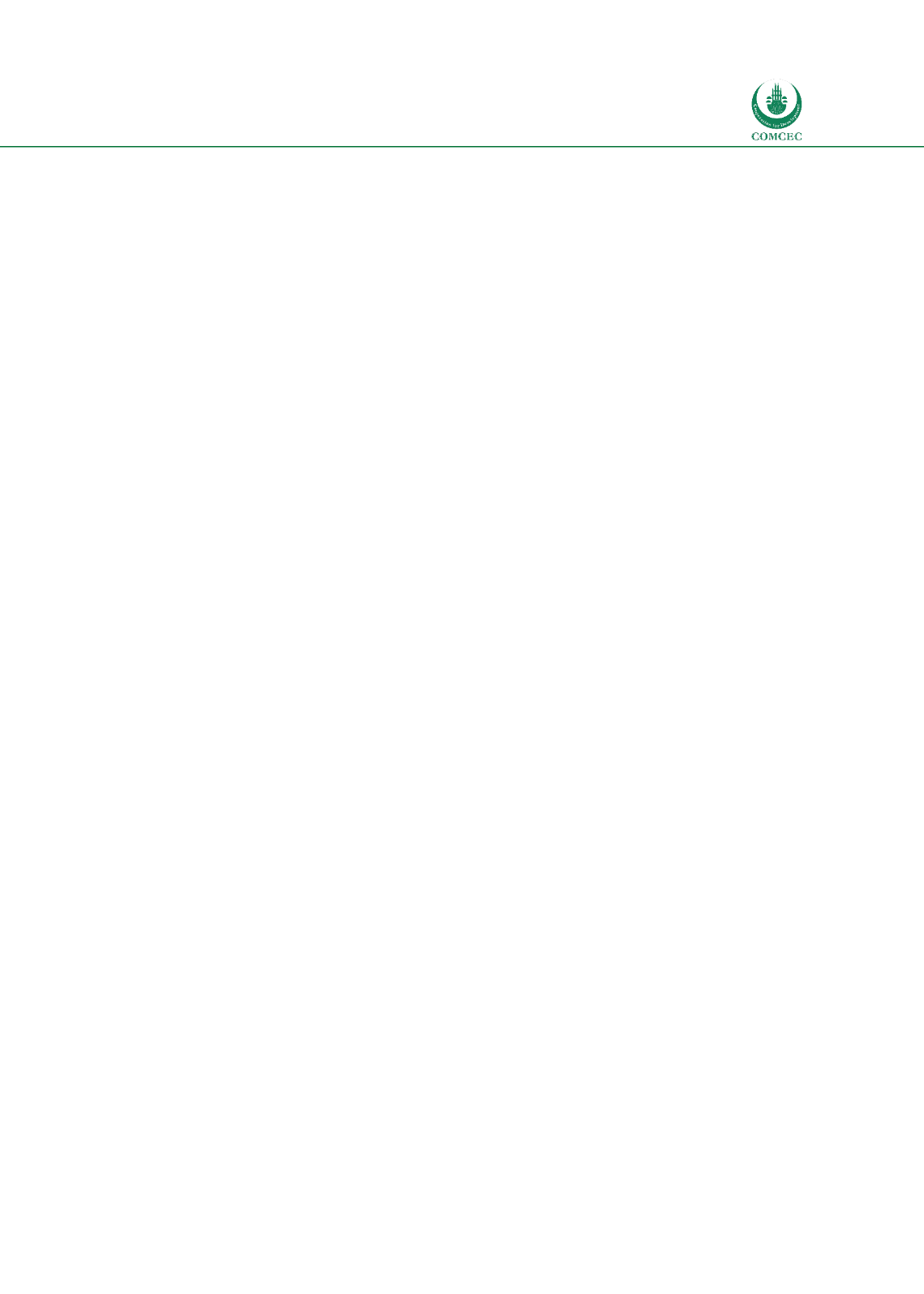

National and Global Islamic Financial Architecture:
Prolems and Possible Solutions for the OIC Member Countries
77
both Repo of the Government
Sukuk
(SBSN) and corporate
Sukuk
which are instruments
available for repo Sharia, a new BI regulation to allow banks to do interbank
sukuk
trading for
liquidity purposes using the repo mechanism.
4.3.5. Information Infrastructure and Transparency
Accounting and Auditing Framework/Transparency And Disclosure
In line with article 35 of the Islamic banking act (Republic Indonesia, 2008a) that stipulates
Islamic financial institutions must use accounting standards reflecting Shariah features, the
Indonesian Accounting Association (IAI) released a guiding framework for accounting and
reporting Islamic financial transactions in 2010. In addition, IAI has developed Islamic
accounting standards for various Islamic finance transactions under regular accounting rules,
namely the Financial Accounting Standard (PSAK). Examples of these accounting standards for
Islamic finance include the following (IAI, 2015):
PSAK 101 for Islamic financial reporting standard, replacing PSAK 59 for Islamic banking
accounting standard.
PSAK 102 for Murabahah accounting standard.
PSAK 103 for Salam accounting standard.
PSAK 104 for Istishna accounting standard.
PSAK 105 for Mudarabah accounting standard.
PSAK 106 for Musharakah accounting standard.
PSAK 101 (released in 2008) on transparency and disclosure requires all Islamic entities to
disclose information on assets, liabilities, temporary syirkah (join venture) funds, equity,
income and cost as well as profit/loss, cash flow and charity funds.
Rating Agency
The Islamic financial institutions are rated internally in the OJK while, externally, Islamic
securities are rated by two central bank approved rating agencies, namely PT. ICRA Indonesia
and PT. Pemeringkat Efek Indonesia (Pefindo). Initiated by Bank Indonesia and Bappepam
(capital market authority) in 1993, Pefindo is locally-owned domestic credit rating agency. As
of December 2014, Pefindo was owned by a total of 86 entities representing key players from
Indonesian capital markets with no shareholder owning more than 50 percent (Pefindo, 2016).
The agency has rated 500 companies and regional governments including their financial
market instruments, both conventional and Islamic.
















